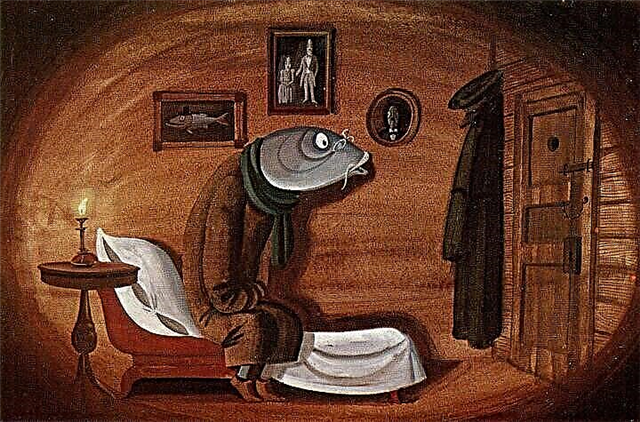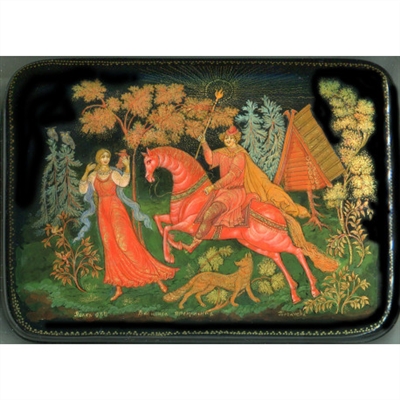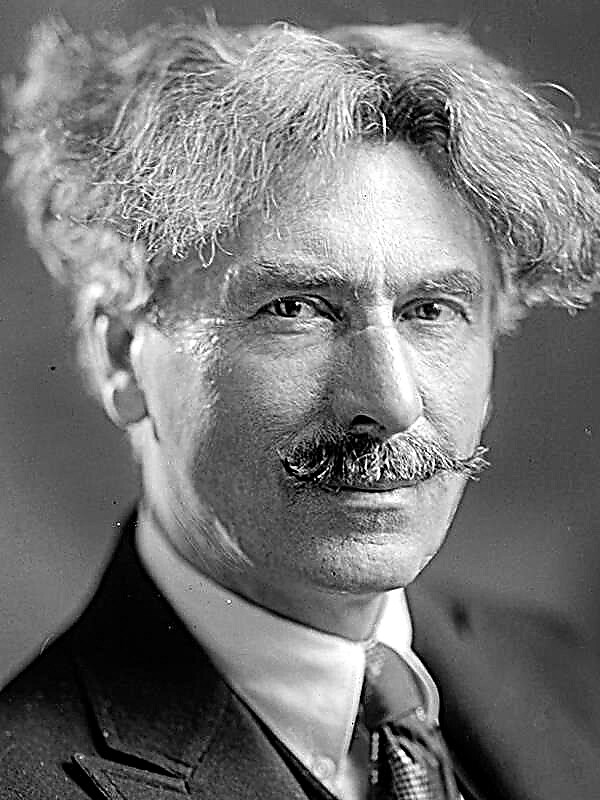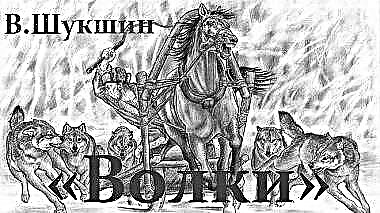M. Saltykov-Shchedrin is a great Russian writer who created a number of works unique not only for 19th century literature, but for all of Russian literature. We will start from fairy tales: “The Tale of How One Man Fed Two Generals” and “The Bear in the Voivodeship”.
Let's start with the tale "The Tale of How One Man Fed Two Generals." In this work, as befits fairy tales, we see some fantastic elements, which, however, are associated only with the beginning of the work. Two typical generals for unknown reasons suddenly fall on a desert island. They prove to be completely helpless and unable to survive on their own in the wild. And, since it was the peasant who was always the “tool” for them to get food, they begin to look for it, as if it were some kind of wild animal hiding in the forest. Both of them are sure that “A man is everywhere, you just have to look for him! He’s probably hiding somewhere, he is slipping away from work! ”
Surprisingly, they really manage to find a man. His appearance amazes and delights the generals, the peasant is huge, strong and agile in comparison with them. In this strong man, practically a Russian hero, M. Saltykov-Shchedrin shows us the image of a simple Russian peasant in the era of serfdom. A man is strong, capable, self-sufficient, but weak in spirit and depressed to the position of a slave. However, we see that he makes himself a slave: he is only glad to serve the masters and all the time he only thanks them for the fact that they do not disdain him with peasant labor. He picks apples for them from a tree, finds potatoes in the ground, and for them he makes a net for catching fish from his own hair. We see that this man has great strength and a huge supply of practical skills; two stupid, fat, sleek generals look pitiful against his background, but still continue to obediently obey them. So, he gives them all the apples he has harvested, leaves only one thing, the most acidic; then it comes to the comic: he himself winds a rope with which the generals will keep him on a leash at night. The conclusion that can be drawn from this sad story suggests itself: serfs are strong, intelligent and capable, but they do not want to go against the system and throw themselves off the shackles of slavery, taking hard labor for granted.
The second tale of M. Saltykov-Shchedrin “The Bear in the Voivodeship” uses the methods of satire and sarcasm in order to expose the vices of autocratic power. The tale tells us about three brown bears - the rulers of the forest slum - Toptygin I, Toptygin II and Toptygin III. In the behavior of these characters you can easily recognize the officials and rulers of the highest layers of that time. The author talks in detail about the philosophy and manner of managing each Toptygin, and each of them chooses the path.
Toptygin I believes that in order for the memory of him to remain for centuries for future generations, “as much bloodshed as possible” is necessary. The desire to get on the tablets of history forces him to build the most ambitious plans and intentions, but as soon as he arrives at the scene of hostilities, he immediately gets drunk and accidentally eats Chizhik, who turned out to be an honorary forest resident and an important person in the forest slum. It ends with the fact that Toptygin I falls into disgrace and his name is forgotten, even though in reality he was a good builder and knew how to build lairs and even turn trees with roots.
Next, Toptygin II comes to power, who decides to learn from the mistakes of his predecessor and not make his mistakes. Therefore, in order to get on these ill-fated historical tablets, he takes up the search for a printing house, university or something like that just to turn these buildings to dust, and thereby show his strength, power and uniqueness. He seeks, but cannot find. It turns out that there was never a trace of a printing house or a university in the slum, so he decides to attack the house of an ordinary peasant, and also makes plans on how to kill his cattle and destroy the entire economy. But the peasant house turns out to be too tough a nut for Toptygin and gets stuck in the roof, not having the strength to get out of the trap. As a result, several united men attack him and arrange lynching over him, as a result of which they kill him because the bear wanted to curry favor with his superiors ", and they" should disappear through it. "
And we see completely different Toptygin III, who does not think at all about the tablets, is calm, good-natured and peaceful. He is locked in his den and does not care about anything happening in the world. He does not want to intervene in the course of events, taking over the experience of his previous colleagues. But even despite the fact that the new ruler is good-natured in the slums, the forest still continues to live according to harsh laws: some emitted an “agonizing cry”, others an “victorious click”. Suddenly, the ending of the story comes - Toptygin III is accidentally killed by hunters like an ordinary fur-bearing animal.
The problem posed by the author in front of us in this fairy tale is easy to find - it lies in the very device of power of that time - autocracy. It’s not just that we see three leaders opposing in style and philosophy of government. Saltykov-Shchedrin tells the reader that changing the rulers is useless, the system itself has rotted inside. Decisive and global measures are needed that will change the whole principle of state structure. The overthrow of autocratic authoritarian rule is necessary.
On the example of the work of M. Saltykov-Shchedrin, we see how constrained and cowardly the liberal opposition of that time behaved. Everyone sees that change is necessary, but they are afraid to say it openly under the scrutiny of the gendarmes, under the pressure of censorship, other prohibitions and strong social stratification. Talking publicly about your thoughts can only be veiled, through books that have affected society gradually. It was precisely such works that became the starting point in solving many problems of that time, they served as an aid to reformism and support for the liberal intelligentsia.












